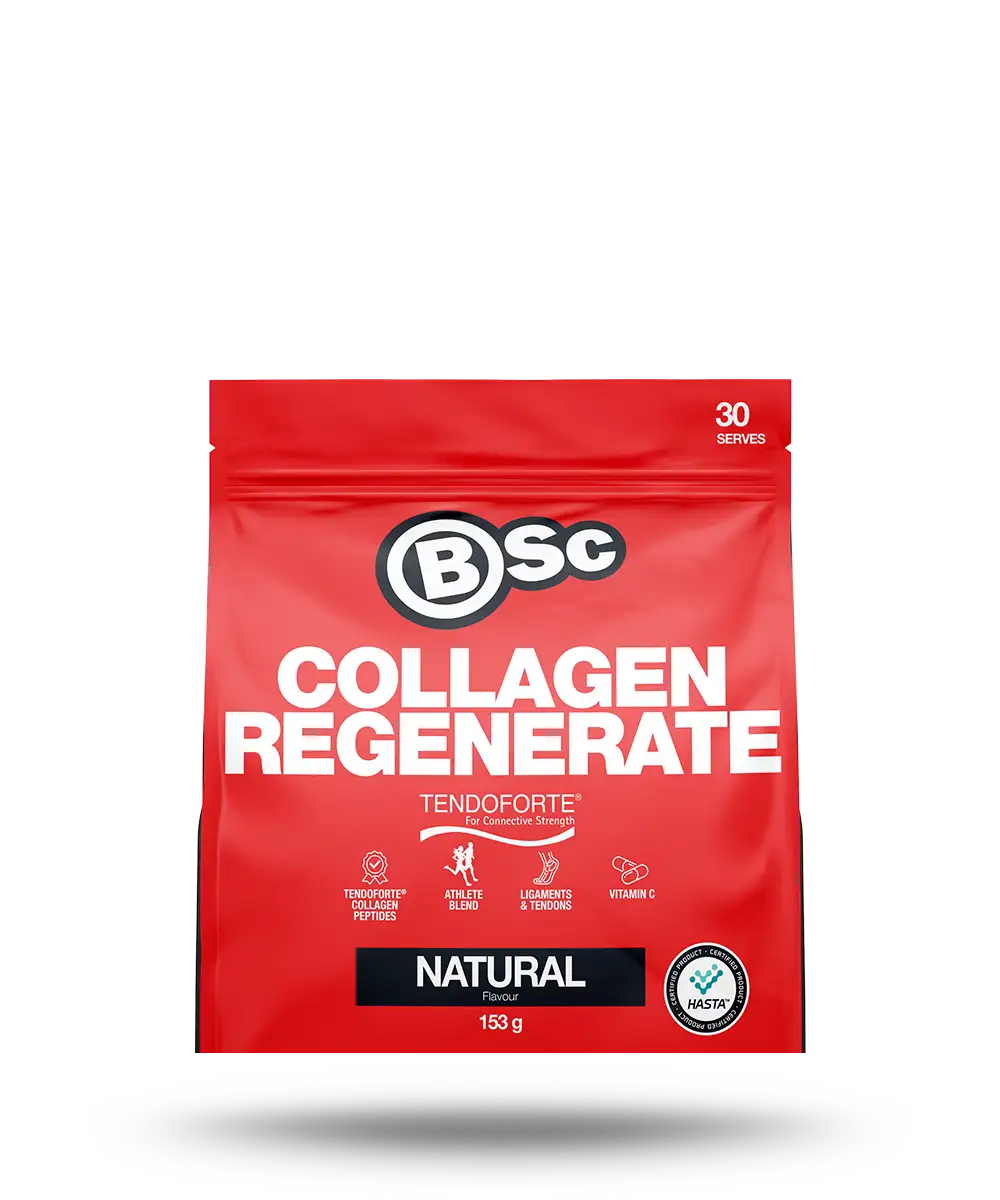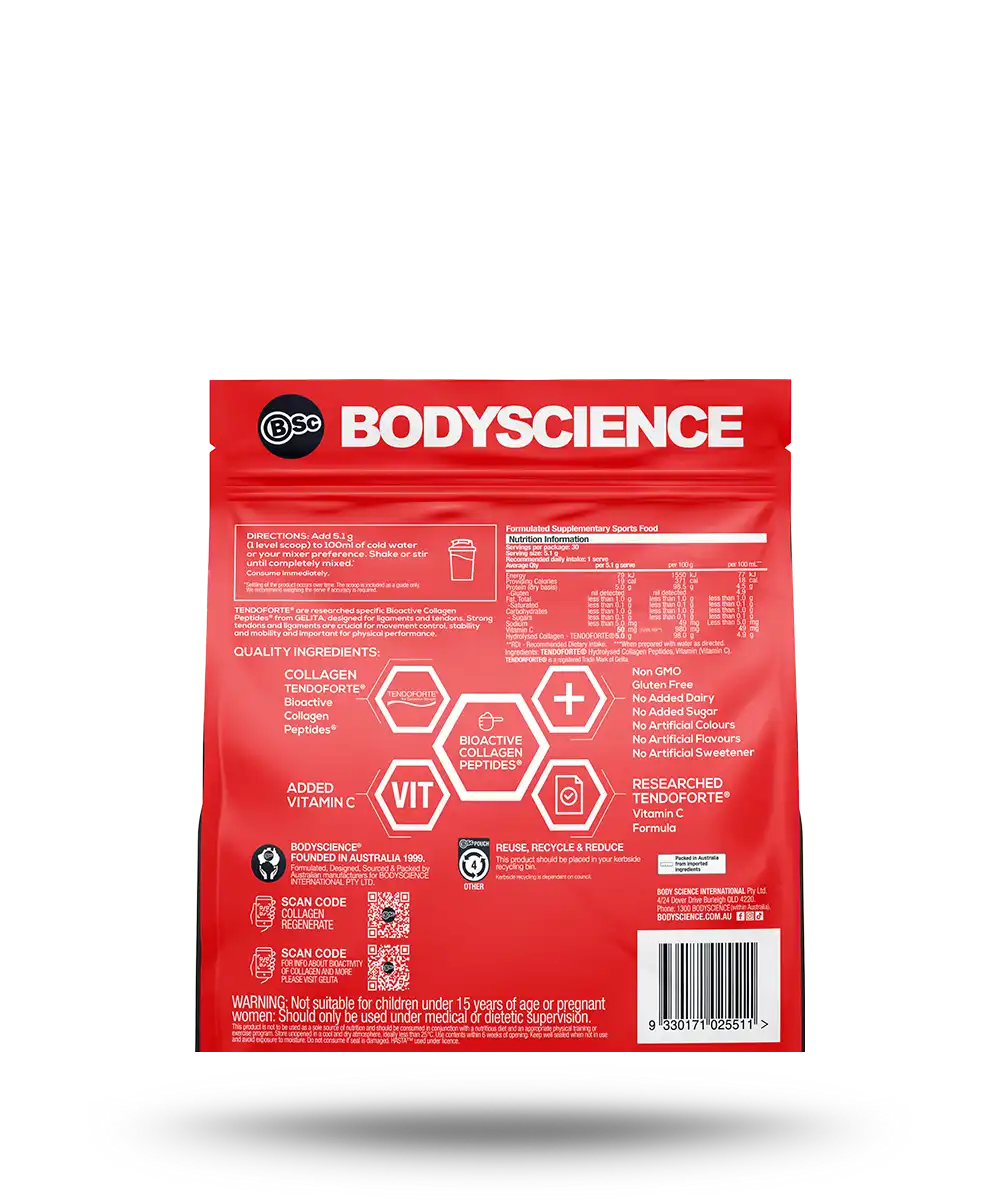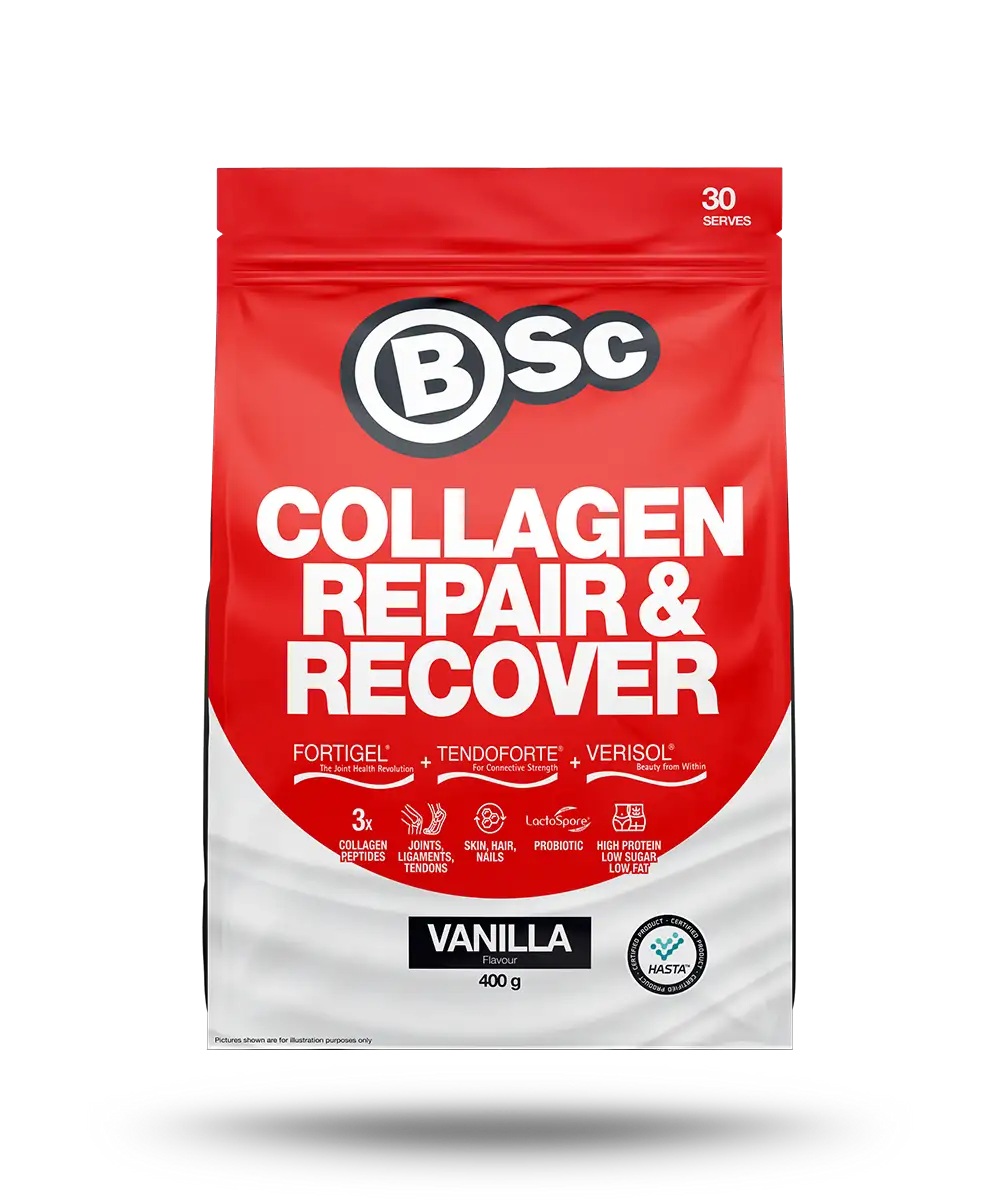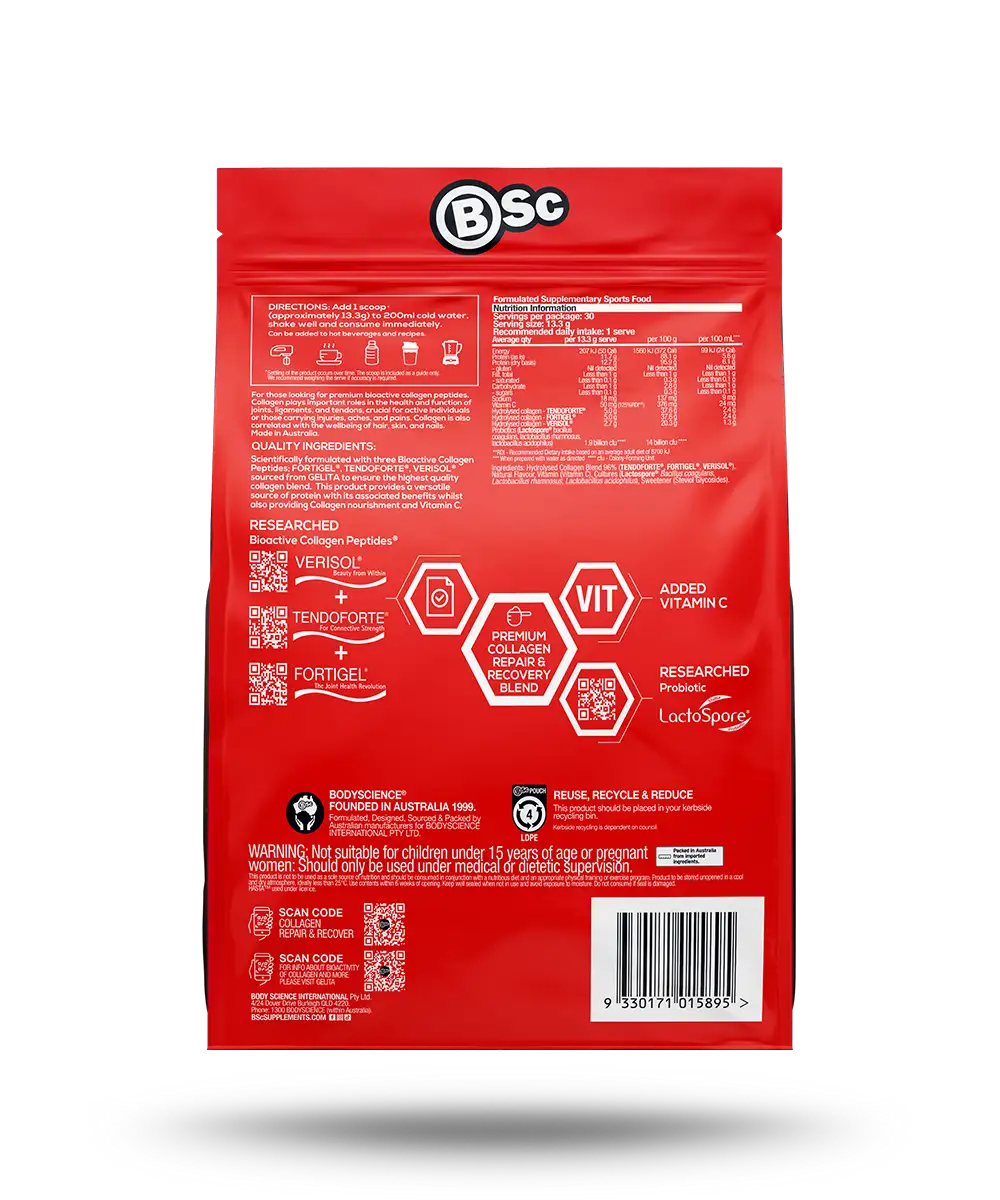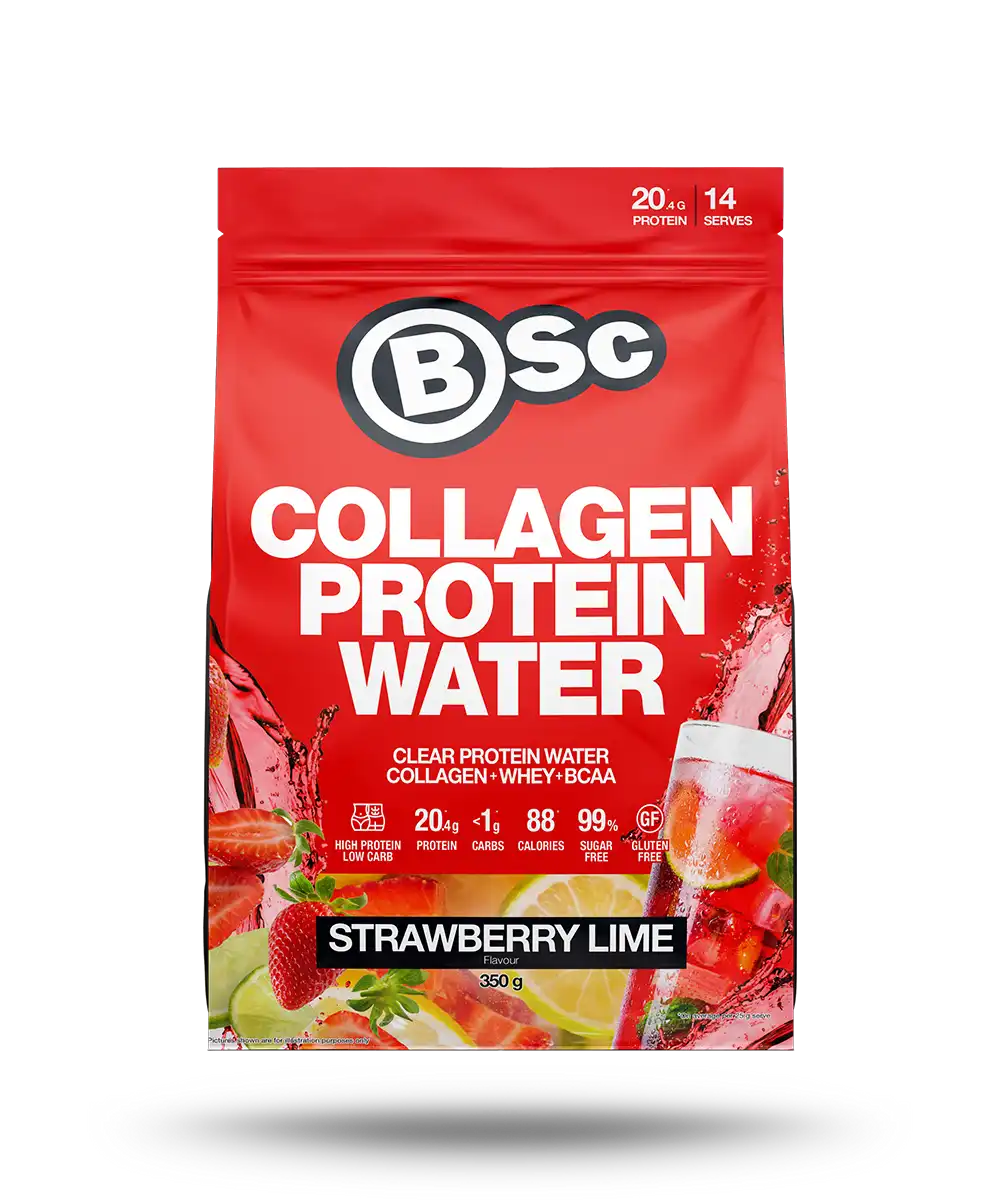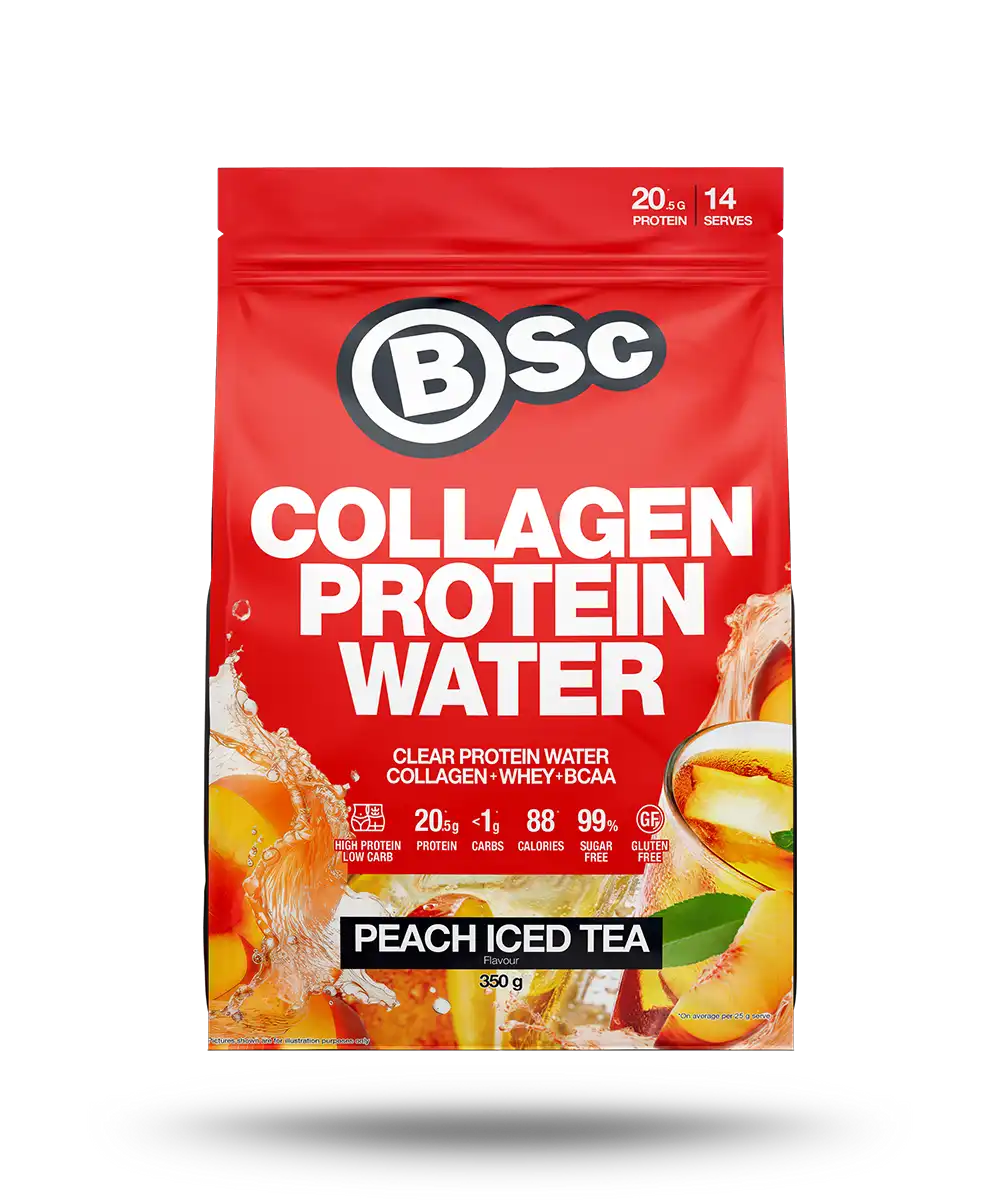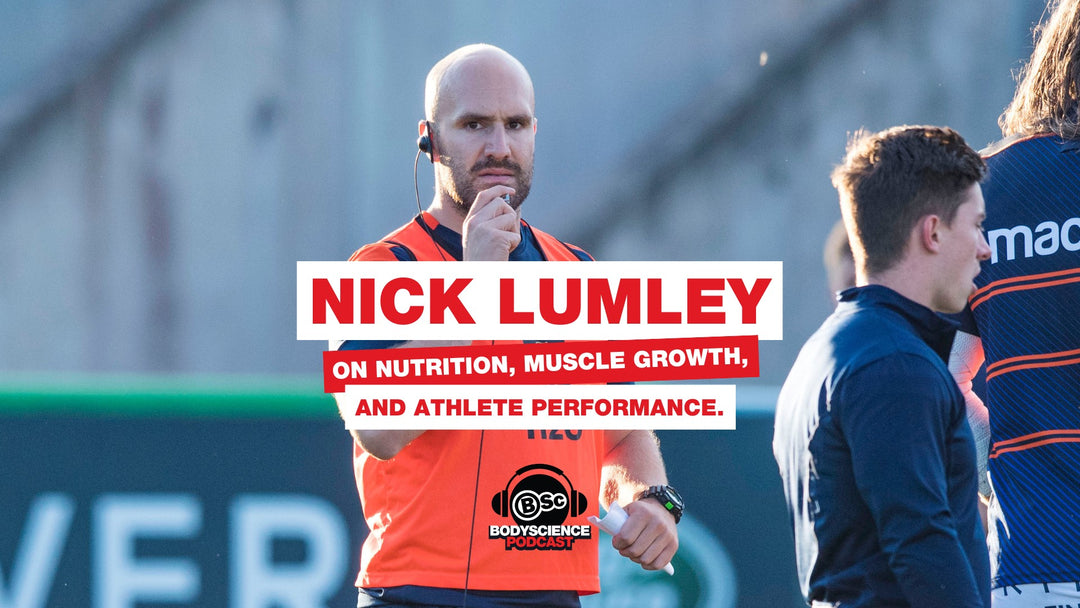What Is Collagen Protein? Is It Worth Investing Your Time?
It can be tricky to navigate the world of supplements, and with so many products on the market, it’s important to know what’s worth investing time and money in. Here, we unpack everything you need to know about collagen protein, one of the most popular supplements out there (and for good reason, as you’ll find out below).
Table of Contents
What Is Collagen?
Why Is Collagen Important?
What Are The Benefits Of Collagen Protein?
- Skin Benefits
- Reduced Joint Pain
- Preventing Bone Loss
- Increasing Muscle Mass
- Improving Heart Health
- Benefits For Hair And Nails
What Are the Disadvantages Of Taking Collagen?
When Will You See Results From Collagen Supplementation?
- Skin Changes
- Bone Changes
- Joints and Tendon Changes
- Nails and Hair Changes
Is Collagen A Good Source OF Protein?
Can Collagen Protein Cause Weight Gain?
Is It Worth Investing Your Time In Collagen?
What Is Collagen?
First things first — what is collagen, anyway?
Collagen is a protein that makes up the structure of cells and tissues within the body. It accounts for 25 – 30% of the proteins in the body. Our bodies are actually made up of 28 types of collagen, though type I is the most common and is found in all connective tissue.
The collagen protein mainly consists of three amino acids — glycine, proline, and hydroxyproline. These amino acids form three strands, which make up the triple helix structure of collagen.
Collagen occurs naturally in the body and can also be sourced from our diets. Gelatin is a protein derived from collagen when it’s cooked, so look to foods with gelatin as a collagen source. Vitamin C also promotes collagen synthesis. Foods containing collagen include:
- Fish
- Chicken and chicken skin
- Pork and pork skin
- Beef
- Bone broth
Though collagen can be sourced naturally from our bodies and diets, it can be taken as a supplement to assist with collagen regeneration.
It’s important to note that in this article when we refer to collagen, we are referring to collagen peptides which are the soluble, short-chains of amino acids that are broken off from full-length collagen molecules. In its natural form, collagen is too large to be properly absorbed through the body. Collagen, in its full form, is used for wound sponges and medical supplies. Collagen peptides essentially break off from the larger chain, and it is this form of collagen that is then sent throughout the body to repair our skin, joints, and bones.
Why Is Collagen Important?
Collagen is a very important protein that plays a part in several bodily processes, including tissue repair, improving immune responses, facilitating cellular communication, and aiding cellular migration.
We also know that as we age, the collagen production in our bodies slows.
Collagen production also decreases due to sun exposure, alcohol, and lack of sleep and exercise.
These factors cause our bodies to produce less collagen, and the strength and thickness of collagen in the deep skin layers are reduced. These changes in the amount of collagen in the body gradually lead to sagging skin and wrinkles.

What Are the Benefits of Collagen Protein?
There are a number of documented benefits to taking a collagen protein powder supplement.
Skin Benefits
Collagen plays an important role in increasing the elasticity and hydration of the skin. As mentioned, when we age our collagen production lessens, which leads to wrinkles and increasingly dry skin. Studies have shown that taking collagen supplements may help to slow the ageing process within the skin by stimulating the body to produce more collagen on its own.
Reduced Joint Pain
The risk of osteoarthritis increases with age due to the decreasing amount of collagen in the body. Collagen essentially helps to retain the structure of the cartilage which protects the joints. Research suggests that collagen supplements may reduce joint pain because the supplemental collagen accumulates in the cartilage, and stimulates the tissues to create collagen. This can help to reduce pain and inflammation, as well as increase joint support.
Preventing Bone Loss
As our bones are made mostly from collagen, bone mass tends to deteriorate as we age. Collagen powder supplements may prevent bone loss by inhibiting bone breakdown, and can therefore reduce the risk of bone injury.
Increasing Muscle Mass
Collagen is a major component of our muscle tissue. It’s been suggested that collagen supplements may promote the production of creatine. Creatine increases the production of adenosine triphosphate (ATP), which is the body’s energy molecule. That all-important creatine boost can give you the energy boost to fit in one last rep or to push a little harder. This improved performance can, in turn, lead to an increase in muscle mass. So, if collagen can help to facilitate creatine production, it indirectly helps to increase muscle mass.
Improving Heart Health
Collagen gives structure to the arteries and promotes blood flow to and from the heart. Without collagen, there may be reduced elasticity in the arteries. This may lead to the narrowing of the arteries, which can cause a heart attack and stroke. Research has also shown that taking a collagen supplement can increase the levels of ‘good’ cholesterol in the body, which can also reduce the risk of heart disease.
Benefits For Hair and Nails
It’s been suggested that collagen may prevent brittleness in the nails and hair, as well as promote hair and nail growth. However, there’s limited research in this area.
What Are the Disadvantages of Taking Collagen?
Collagen has very few side effects and is well tolerated by most people. Minor reported side effects include:
- Bloating
- Heartburn
- Feeling of fullness
It’s also important to note that some collagen supplements contain allergens such as eggs and shellfish.
The Body Science Collagen Supplements do not contain any of these allergens.

When Will You See Results from Collagen Supplementation?
When it comes to collagen supplementation, patience is key. It takes time for collagen to work its magic. Time frames will vary based on a variety of factors, including:
- Age
- Diet
- Genetic makeup
- How quickly collagen breaks down in your body
- Alcohol/smoking intake
You’ll likely see results from regular collagen supplementation in 2 – 12 months, depending on the specific changes you’re looking to make. We’ve broken down a rough time frame for each area below, but remember that this will vary from person to person.
Skin Changes
A recent study showed that if your daily intake of collagen is between 3 – 10 grams, you’ll likely see skin changes in 6 – 12 weeks. Our Body Science Advanced Athletic Beauty Collagen Ultra and Tendoforte Collagen Regenerate Hasta Certified contains 13.3g and XX g of collagen respectively, so you may even see results sooner than that!
Bone Changes
Research shows you’ll likely see improvements in the bones after 12 months. This seems like a long time to wait, but this is simply due to the naturally lengthy process of bone turnover. This study showed improved bone density in postmenopausal women who took collagen peptides daily for 12 months.
Joints And Tendon Changes
This study showed that joint support and pain reduction will take up to 6 months, depending on whether the pain is localised or generalised. Changes to localised joints may take up to 12 weeks, while overall joint pain will take longer to improve. As for tendon and ligament pain and mobility, changes are likely to be noticed around the 3 – 6 month mark.
Nails and Hair Changes
As with the areas mentioned above, the time it takes to see improvements in the hair and nails will depend on lifestyle and genetic factors, and collagen dosage. This study showed that it took 24 weeks to see reduced brittleness in the nails, however, participants only took 2.5g of collagen a day.
Is Collagen a Good Source of Protein?
So, does collagen powder contain enough protein to see you through? While collagen is a protein with many benefits, it is not a complete protein and therefore shouldn’t be used as your main source of protein.
20 different amino acids can form a protein, and there are 9 specific amino acids that the body is unable to produce on its own. These are otherwise known as essential amino acids. Complete proteins contain all 9 essential amino acids. These can be sourced from different foods such as eggs and whey.
Collagen, however, only contains 8 of these amino acids and is, therefore, an incomplete protein. It’s also important to note that complete proteins contain the 9 amino acids in similar amounts, whereas collagen’s 8 amino acids are not balanced. As mentioned earlier, collagen skews towards glycine, proline, and hydroxyproline. For these reasons, collagen shouldn’t be used as the body’s only source of protein.
Can Collagen Protein Cause Weight Gain?
-
There is no evidence to suggest that collagen protein causes weight gain. There is actually some limited evidence to suggest that it may indirectly aid weight loss. It’s important to note that most studies are outdated, limited, or involve animals. However, it is suggested that collagen may aid weight loss in the following ways:
Increasing Fullness – Collagen is a protein, and proteins tend to increase fullness, therefore decreasing hunger and calorie intake. - Building Muscle Mass – Muscles burn more calories at rest, so increasing muscle mass is important when looking at weight loss. Collagen is the main structural protein in your muscles. It has been suggested that collagen supplements may maximise the impact of strength training on muscle mass, therefore aiding fat loss.
- Reducing Fat Cell Growth – This study suggests that taking collagen from skate fish may reduce body fat, as collagen from skate fish reduces the accumulation of fat cells in the body.
-
Minimising Joint Pain – As collagen works to reduce joint pain, you will likely have more energy and mobility to undertake daily exercise and activities, which is one of the most important elements when it comes to weight loss.
Is It Worth Investing Your Time in Collagen?
Collagen supplementation has been shown to have a variety of benefits on the skin, joints, muscles, hair and nails, and bones. While collagen shouldn’t be used as the body’s only protein source, it is an excellent supplement to slow the effects of ageing.
Explore the range of Body Science Collagen Supplements.

